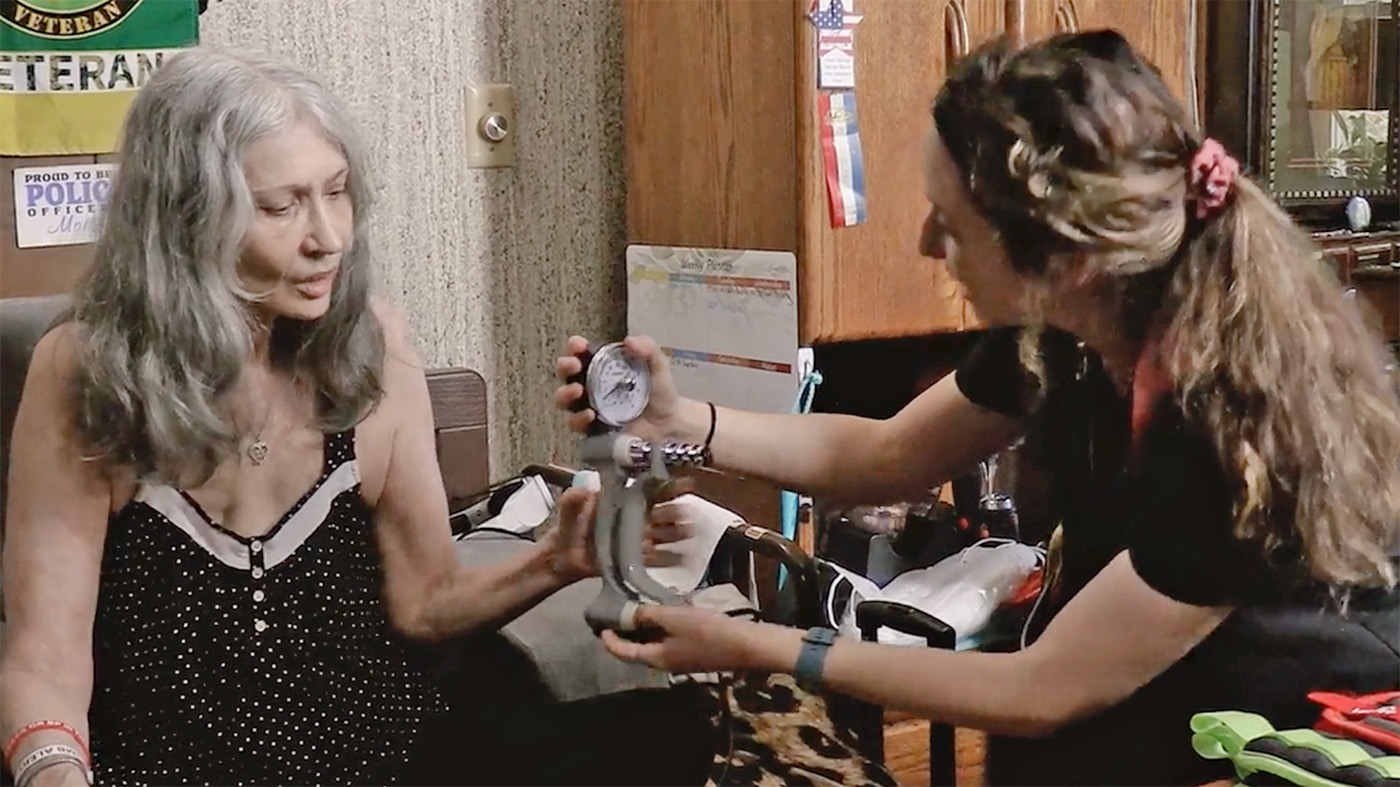In a new short video, the story of Kari Ann Shulman—a proud Veteran of the Women’s Army Corps—offers a fresh take on the transformative power of immersive technology. Shulman faces challenges daily due to secondary-progressive multiple sclerosis (SPMS), a condition that has significantly impacted her mobility.
At one time, she found herself becoming more tired and unmotivated. However, Shulman’s resilience, curiosity and determination led her to discover an unexpected source of relief: Virtual reality (VR).
Like so many, Kari began her VR experience with games and meditative applications that provided a much-needed break from the limitations of her physical world. Then she noticed there were applications for physical exercise. Curiosity led her to try them out and the outcomes were remarkable. “I had no idea I would actually physically benefit from it,” she said.
Measurable improvement
Not only did Shulman experience a boost in her overall feeling of well-being, but she also experienced remarkable improvement in her health.
Bianca Arney, registered dietitian in home-based primary care for Harry S. Truman VA in Missouri, has been monitoring Shulman in her home and regularly measuring her grip strength with a device called a dynamometer.
Given Shulman’s SPMS, Arney had been following a decline in Shulman’s mental health and physical strength over time until a recent visit where she noted unexpected results. Since Shulman began regular physical activity and social interaction in an immersive virtual environment, her grip strength had markedly improved as had her self-reported sense of connectedness and emotional and mental well-being.
Shulman’s experience and enthusiasm for making immersive technology like VR more available to other Veterans highlight the real-world impact immersive technology is having for Veterans across the country.
VA Immersive, an effort within VHA Office of Healthcare Innovation and Learning’s Strategic Initiatives Lab (“Strat Lab”), is at the forefront of championing the implementation and integration of immersive technology in health care.
A vision beyond technology
The overarching vision of VA Immersive transcends mere technological adoption. It is about cultivating connections, nurturing diverse communities and spearheading health care transformation with Veterans’ experiences and feedback as the guiding force.
For Shulman, VR is about far more than games and new technology. It is her bridge to a world that had been slipping away. In the virtual realm she has found camaraderie, learning opportunities and physical activity.
“It’s a lifesaver,” she said, emphasizing the profound impact it has had on her life. Shulman is very keen to see other Veterans—particularly those who are isolated or living in rural and remote areas—gain more access to VR and these engaging, virtual experiences.
Shulman’s story serves as an inspiration and a beacon of hope for others. Her journey is a testament of VA’s commitment to innovate and improve the lives of those who have served. To learn more about this program, visit the VA Immersive website.
Topics in this story
More Stories
Bob Jesse Award celebrates the achievements of a VA employee and a team or department that exemplifies innovative practices within VA.
The Medical Foster Home program offers Veterans an alternative to nursing homes.
Watch the Under Secretary for Health and a panel of experts discuss VA Health Connect tele-emergency care.







I have Ms, and this approach sounds like a good fit for me. I would like to know more about how to use it for myself!